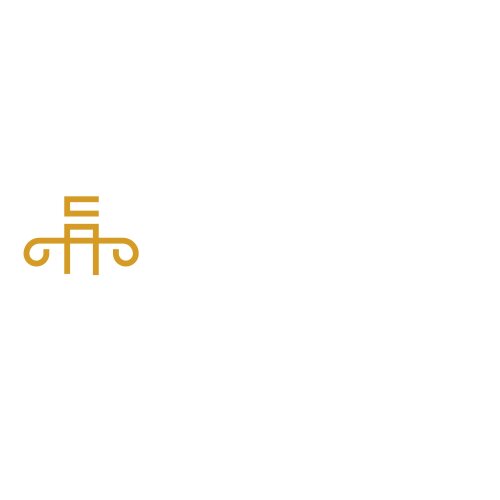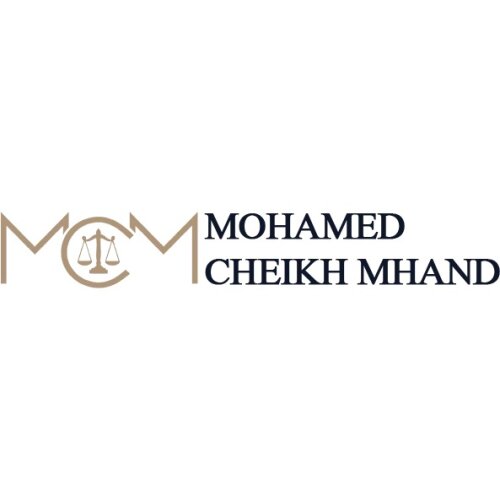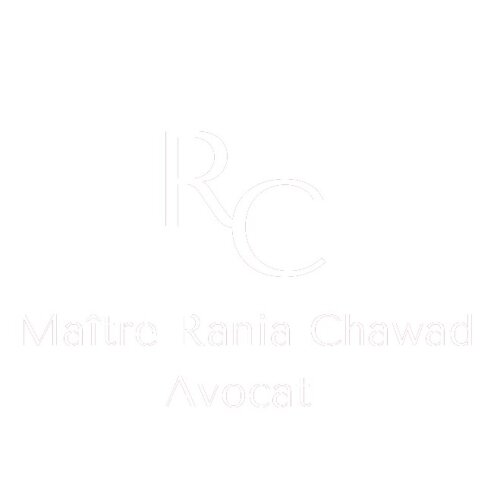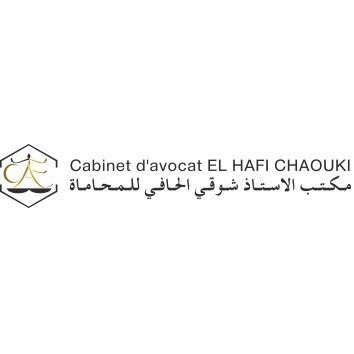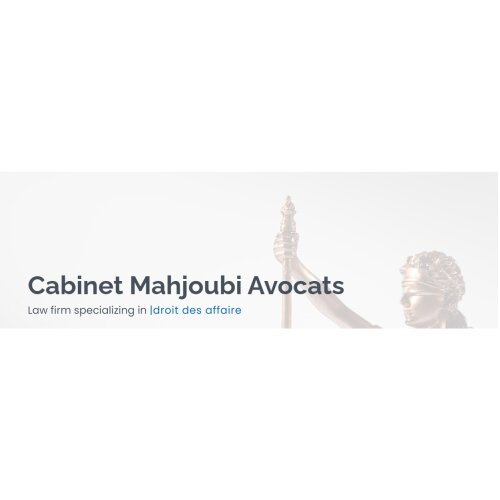Best Mining Law Lawyers in Tangier
Share your needs with us, get contacted by law firms.
Free. Takes 2 min.
List of the best lawyers in Tangier, Morocco
About Mining Law in Tangier, Morocco
Mining Law in Tangier, Morocco, is governed by a set of national statutes and local regulations that oversee the exploration, extraction, processing, and exportation of minerals and other geological resources. The legal framework is anchored in Morocco's Mining Code, which is applicable across the country, including the Tangier region. This field of law also intersects with environmental legislation, labor law, commercial regulations, and public land use policies. Companies and individuals involved in mining activities must comply with licensing procedures, environmental assessment requirements, and community impact considerations established by Moroccan authorities. Tangier, being an important commercial and logistical hub, sees a mix of local and international interests in mining activities, making legal compliance even more critical.
Why You May Need a Lawyer
Legal assistance is crucial in the mining sector for several reasons. Securing mining rights and permits often involves complex administrative processes and negotiations with governmental bodies. A mining lawyer can help interpret and navigate these intricate regulatory requirements to ensure that your operations are legally sound. Common situations where people may need legal help include negotiating contracts for mining concessions, handling disputes over land titles or resource ownership, ensuring compliance with environmental regulations, resolving issues with local communities, and addressing tax obligations or labor matters. For foreign investors or companies partnering with local firms in Tangier, the expertise of a mining law specialist ensures clear understanding of both Moroccan law and international agreements.
Local Laws Overview
Mining activity in Tangier, and throughout Morocco, is governed primarily by the Moroccan Mining Code (Law No. 33-13), which establishes the rules for prospecting, exploring, and operating mines. Local authorities in Tangier may also set additional requirements concerning urban planning, environmental protection, and community impact. Key aspects of the law include:
- Licensing and permitting: All individuals and companies must obtain the necessary exploration or exploitation permits from the Ministry of Energy Transition and Sustainable Development.
- Environmental compliance: Environmental impact assessments and mitigation plans are required for most mining operations and must adhere to national and local standards.
- Community and land rights: Consultations with local communities and fair compensation for land use may be required, especially for projects on or near communal or private lands.
- Foreign investment: While Morocco encourages foreign investment in mining, there are specific regulatory and reporting requirements for foreign-owned entities.
- Taxation and royalties: Operators are responsible for fulfilling tax obligations and paying any relevant royalties as set out in national laws and local regulations.
Frequently Asked Questions
What permits do I need to start mining activities in Tangier?
You must obtain the appropriate exploration and exploitation permits from the Moroccan government, through the Ministry of Energy Transition and Sustainable Development. Additional permits may be required from local Tangier authorities, especially concerning land use and environmental compliance.
Can foreign companies or individuals own mining rights in Tangier?
Yes, foreign entities can own mining rights in Morocco, but they are subject to certain regulatory controls, reporting requirements, and investment procedures. It is often advisable to engage with local partners or legal counsel to comply with all rules.
How are environmental concerns addressed in the mining process?
All proposed mining projects must undergo an environmental impact assessment and adhere to both national standards and any relevant local regulations in Tangier. Ongoing operations require continuous monitoring and compliance reporting.
What tax obligations apply to mining operations?
Mining companies and individuals are subject to corporate taxes, value-added tax, and specific mining royalties or fees, according to both national tax law and local regulations in Tangier.
Are there specific laws for artisanal and small-scale mining in Tangier?
Yes, Moroccan law recognizes and regulates artisanal and small-scale mining activities. There are distinct licensing and compliance procedures designed to accommodate smaller operators while ensuring environmental and safety standards.
How are disputes over mining rights or land use resolved?
Disputes may be resolved through administrative channels, mediation, or litigation in Moroccan courts, depending on the nature of the conflict. Legal counsel is highly recommended for navigating such issues.
What are the consequences of non-compliance with mining laws?
Non-compliance can result in sanctions, including fines, revocation of permits, suspension of operations, and, in severe cases, criminal liability. Regular legal review and compliance audits are advisable.
What role do local communities play in the approval of mining projects?
Local communities may need to be consulted and compensated, particularly if mining activities affect communal land or livelihoods. Socio-economic and environmental impact studies must address these concerns.
Is it possible to transfer or sell mining permits and rights?
Mining rights and permits can typically be transferred or sold, but only with the prior approval of the relevant Moroccan authorities and in accordance with the Mining Code's procedures.
Who supervises mining activities in Tangier?
Mining activities in Tangier are primarily supervised by the Ministry of Energy Transition and Sustainable Development, with oversight by national agencies and relevant local authorities for environmental and land use matters.
Additional Resources
If you need further information or assistance regarding Mining Law in Tangier, consider contacting the following entities:
- The Ministry of Energy Transition and Sustainable Development (Ministère de la Transition Energétique et du Développement Durable)
- The National Office of Hydrocarbons and Mines (Office National des Hydrocarbures et des Mines - ONHYM)
- The Tangier Regional Government (Wilaya de la région de Tanger-Tétouan-Al Hoceima)
- Local chambers of commerce and industry
- Professional associations for mining engineers and geologists in Morocco
Next Steps
If you are seeking legal advice or representation for mining activities in Tangier, start by gathering all relevant documentation regarding your project, such as land titles, permits, environmental reports, and business registration records. Next, consult with a qualified lawyer specializing in Moroccan Mining Law, ideally with experience in the Tangier region. A legal expert can guide you through due diligence, assist in permit applications, draft or review contracts, and represent you in any dispute resolution processes. Stay proactive by maintaining compliance with all regulatory and environmental standards and keeping informed of local developments that may affect your mining activities.
Lawzana helps you find the best lawyers and law firms in Tangier through a curated and pre-screened list of qualified legal professionals. Our platform offers rankings and detailed profiles of attorneys and law firms, allowing you to compare based on practice areas, including Mining Law, experience, and client feedback.
Each profile includes a description of the firm's areas of practice, client reviews, team members and partners, year of establishment, spoken languages, office locations, contact information, social media presence, and any published articles or resources. Most firms on our platform speak English and are experienced in both local and international legal matters.
Get a quote from top-rated law firms in Tangier, Morocco — quickly, securely, and without unnecessary hassle.
Disclaimer:
The information provided on this page is for general informational purposes only and does not constitute legal advice. While we strive to ensure the accuracy and relevance of the content, legal information may change over time, and interpretations of the law can vary. You should always consult with a qualified legal professional for advice specific to your situation.
We disclaim all liability for actions taken or not taken based on the content of this page. If you believe any information is incorrect or outdated, please contact us, and we will review and update it where appropriate.




